We’ve talked about how SEO can help increase your online visibility as a whole, but what if you have a rather localized company? If you’re a hair salon or plumbing company that isn’t concerned with someone finding your company in a Google search 300 miles away, local SEO is more important than you may think, and we’ve gathered some tips to help your small business thrive online.
What is local SEO?
Local SEO is the practice of optimizing a business’ web presence for increased visibility in local organic search results. Think about driving down a main street in any given city. You’ll see a number of restaurants, auto shops, specialty stores and many more establishments all competing for your sale. It’s a free market, and as a small business ourselves, we love seeing this type of competition in the market as well as a boom in our community. But how do you as a consumer choose which Italian restaurant to dine in tonight or which craft supply store to visit late on a Thursday night?
We Google it! 46 percent of all Google searches are looking for local information, which means if your business isn’t optimized for local search, you could be missing out on potential customers who are ready to shop in your area. Basically, local SEO is critical if you want your business to stay relevant.
Complete your Google My Business page
Google My Business is by far the most often used tool people use when conducting a local search. To ensure you’ve optimized your page, you’ll want to first make sure you have created and verified your Google My Business page. If this is your first time visiting the page, Google has made it super easy with step-by-step help. You can then encourage your customers to share reviews online, allowing you or a member of your team to respond authentically to these reviews.
If Google can verify your business as authentic, the search engine could potentially reward your business with a coveted sidebar space in Google’s local search. This isn’t just great for SEO purposes; it’s great for business. If 2020 taught us anything about the evolving digital world, it’s that accurate and easily accessible information is gold. Whether it was adjusted business hours or new practices to follow CDC guidelines, checking a business’ Google page before leaving the house became the norm.
Local SEO 3-Pack
Let’s say you wanted to find an Italian restaurant near you. When you make that search, you see what’s called a local SEO 3-pack which looks like this:
This list is generated by Google based on what they consider the best match for your query. These locations will show up at the top of your search results because they rank the highest and are probably located closest to your current location. Showing up in this three-pack is another reason to have that Google my Business page claimed and filled out.
Ensure your NAPs are consistent
NAP stands for name, address, phone number. Your NAPs will appear in most places your business exists, like LinkedIn, Facebook, Google My Business, and other directory sites. It’s incredibly important your NAPs are the same across as many of your assets as possible. This will help improve your website’s rankings for local searches. If you aren’t sure of their accuracy, do a quick brand audit. You don’t want to be penalized for something you can easily fix.
Mobile Friendly
Your site needs to be optimized for mobile, as it has a massive impact on the experience of site users. The truth is, 52 percent of all online searches are on a mobile device, whereas only 44 percent take place on a desktop. Both the loading speed and overall look of your site on a mobile device make a world of difference in this fast-paced world.
If your website is not as user-friendly on mobile as it is on a desktop, potential customers visiting your site will struggle to learn about your business, how you can help them or how they can contact you. This could lead to them bouncing from the site and moving on to your competitor’s site.
Create Local Content
Google keeps getting smarter, which means content creators are now able to truly write for users, not search engines. But, when you write about a general topic, you attract a general crowd. When you want to focus on local traffic, it’s more important to hone your focus and write about local or industry news.
Become the local expert on what you do by promoting local industry gatherings, news, employees and other educational content on your website. One way to do this is by having a blog section of your website. This not only will help with SEO, but will also show authenticity and reliability in your brand and products or services.
Optimize Title Tags, Headers and Meta Descriptions
When it comes to content, every new blog post or landing page is a new indexed page for your site, a new page on which to target a geographic search phrase and a new opportunity to get found in search results. Because of this, you need to optimize your content for search engines by using relevant, high-volume keywords in the URL, title, header, meta description and body of the page. One tool that can be used for this is Google Keyword Planner.
Participate in Your Local Community
This should be a no-brainer for any small business. When you get your name out there, you’ll be in the front of people’s minds and (of course) you’re doing good around your community. If you’re participating in or sponsoring events, you’re likely to get digital publicity from those organizations as well. This adds to your inbound links online, furthering your validity and authority as a company, and Google loves that.
Local SEO can be harder than you might think, but with the right marketing team on your side, it gets a lot easier. Our dedicated marketing team at Rooted Web is ready to help you stand out!
Like what you're reading?
Subscribe to the blog for insightful posts delivered via email. We respect your privacy and won't spam your inbox.

